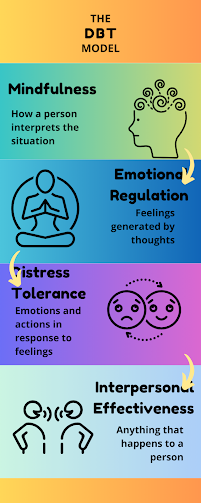Mindfulness - a simple explanation
Mindfulness is the practice of being fully present in the moment, paying attention to your thoughts, feelings, and sensations without any judgment. It is a state of active/inactive attention to the present, without regard to the future or the past. Mindfulness is described as the ability to be fully present, aware of where you are, what you are doing, while not being overly reactive or overwhelmed by what is going on around you.
Mindfulness can help reduce stress, improve mental well-being, and enhance focus and self-awareness. Practicing mindfulness has been found to reduce depression and anxiety symptoms and increase feelings of well-being.
Mindfulness is a basic concept used by many therapists. Many schools are implementing mindfulness exercises and activities in order to improve mood, improve focus, and increase empathy and cooperation in the classroom and general social interaction within the school. In the home many parents are offering their children opportunities to practice and enjoy moments of mindfulness and thought, alone or together as a family. Also, many parents are enjoying the practice and effects of mindfulness in the way they inter-relate not only with family, but with outside relationships and activities, including church, work and social interactions with others.
I was first introduced to the term "mindfulness" while taking a court ordered class with one of my grandchildren. Ther term was something I hadn't heard before but the exercises and suggested ways of being were skills, actions and a way of thinking I was already familiar with and used frequently in my own life. The difference is that I generally referred to it as "being in the moment."
You probably already practice being mindful in many ways without labeling it as such. One parent I talked with recently said she called being mindful as "counting to ten" time when she paused and breathed deeply before reacting to her children. Another parent I spoke with described being mindful as looking for and appreciating the good in her children before responding to something negative they may have done. Another parent described being mindful as "changing focus", explaining that she teaches how to be mindful by helping her child to re-focus/change focus without getting stuck in emotions or a long thinking process - (I know the show is over, and you are sad. Can you think of something that makes you feel happy?) (When he is whining about bedtime, I ask him to tell me about what he is going to dream about,- where he will be, what fun will he have, who will be in the dream with him and how happy they will be. His tears turn into excitement.) These are just a few examples from other parents. Think about yourself and I am sure you will find you often use this skill in ways you haven't thought about or labeled as being mindful - just loving and understanding.
I wish you the best in your parenting efforts today. Believe in yourself. You are doing much better than you think.



Comments
Post a Comment